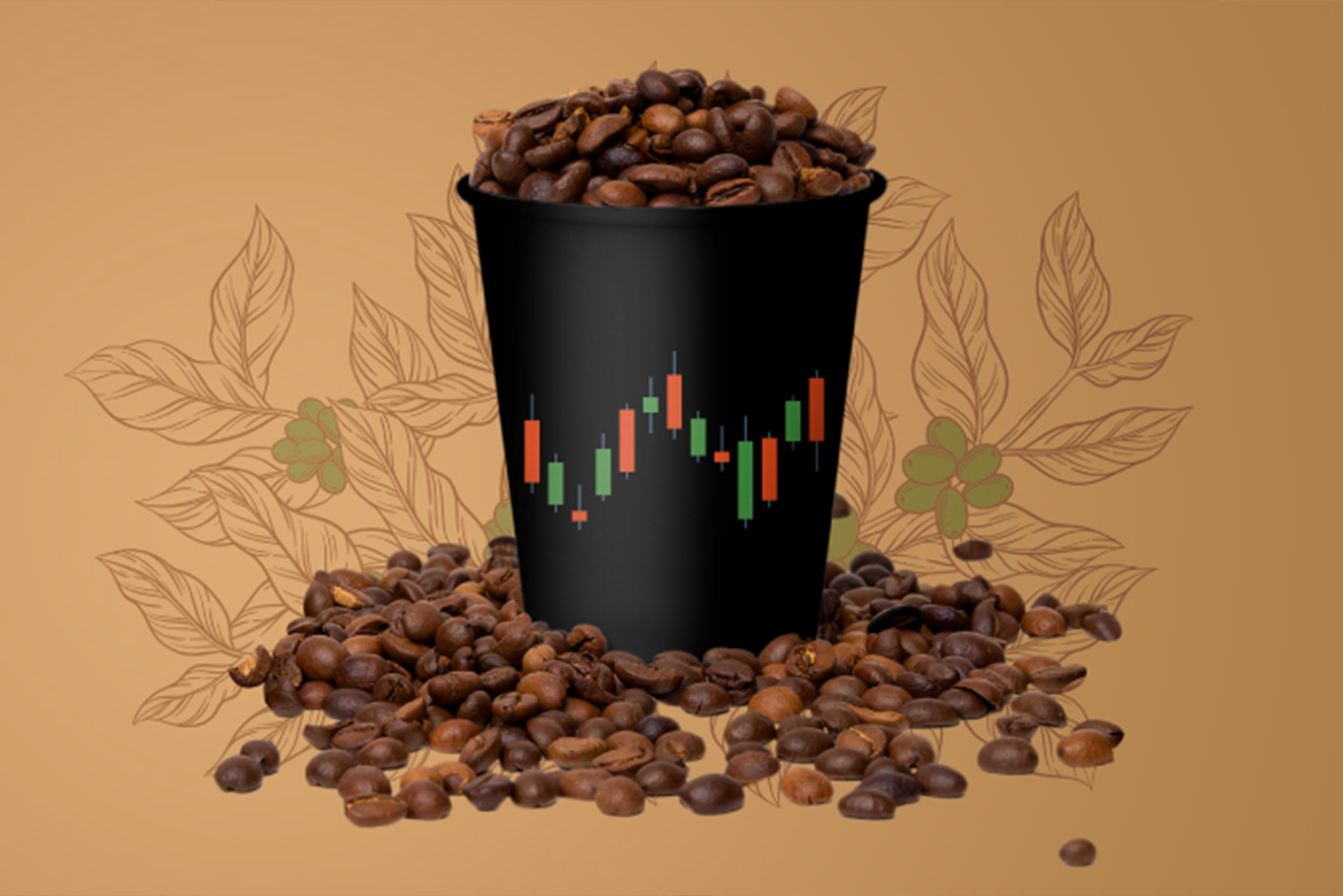Wednesday, September 28, 2022
From your cup to your portfolio - a guide to trading coffee
By Century Financial in 'Blog'

.jpg)
"Science may never come up with a better office communication system than a coffee break" - Earl Wilson.
Whether it's the corporate world or some friends catching up on their daily lives (maybe sitting on an orange couch in Central Perk), coffee has become a worldwide staple.

International coffee day is celebrated on October 1 to share the love for coffee and support millions of coffee farmers.
Approximately 2.25 billion cups of coffee are consumed every day. The number shows the amount of potential investment coffee, and its industry has. The coffee market is expected to hit $157.76 billion by 2030, at a CAGR of 4.88% between 2021-2030, driven by significant popularity, per Market Research Future's report.
Coffee is traded as a "soft commodity" in the commodity market since it is an agricultural product.
Let us now dive into more details of the coffee industry, commodity trading works for coffee and some more information you should know, but first,
What are the most common types of coffee?

Arabica coffee beans tend to have a more pleasant and smoother flavour. They account for nearly 70% of the market share. The Arabica coffee beans are more expensive than Robusta as the former is considered to be more premium.
Robusta coffee beans tend to be slightly bitter due to the higher caffeine content. They have approximately 30% of the market share.
Who are the largest producers and consumers of coffee?
Coffee beans are produced in more than 70 countries with tropical or sub-tropical climates. Some of the largest coffee producers as per production in 2020 are:

In terms of per capita, Finland consumes the most coffee. An average Finnish person drinks approximately 4 cups of coffee per day.
Now coming to the golden question, how can you, as an investor, trade or invest in coffee?
What are the ways to invest/trade in coffee?
.png)

Contract For Differences, a.k.a. CFDs, allow us to get exposure to stocks, commodities, etc. The availability of leverage and the ease of online trading makes CFD trading a convenient tool.
Those who wish to gain exposure to coffee as a commodity can opt to trade in coffee CFDs.

The most common way to trade coffee has been using a futures contract. In a futures contract, two parties agree to buy/sell the coffee beans at a predetermined price on a predetermined date.
It is possible that the physical delivery of coffee beans may not take place, and the exchange is cash settled. It depends on the parties holding the futures contract.
The coffee beans futures contracts are traded on a futures exchange and are, therefore, standardised in terms of quality and quantity.
A forward contract is more customised than futures and is traded Over the Counter (OTC). The profit or loss in a forward contract is based on the difference between the asset's spot price (current price) and the future price.


Another alternative is to invest in companies, including FMCG firms, cafes, etc., that help coffee reach the end consumers.
Primarily, these companies are directly impacted by the growing demand for coffee and its products. FMCG companies like Nestle sell coffee powders and other products which can be used to make piping hot or ice-cold coffee in the comfort of their home, office or anyplace as per their convenience
Cafes like Starbucks (SBUX), which have a worldwide presence, are revered by young and old alike. Cafes like Starbucks are often preferred for business meetings or get-togethers.
Here are some of the coffee stocks you may wish to keep your eye on:


1. Nestlé S.A. (NSRGY)
2. Keurig Dr Pepper (KDP)
3. The J.M. Smucker Co. (SJM)

1. Starbucks (SBUX)
2. The parent company of Tim Hortons, Restaurant Brands International (QSR)
Factors influencing the coffee prices
Broadly, commodity prices are influenced by supply and demand forces. For coffee, the key factors include:
1. Weather: In times of adverse weather like extreme winters, floods and so on, the price of coffee can increase due to lower production. In winter, consumption of coffee tends to increase, leading to higher demand and, therefore, higher prices.

2. Geopolitics: The political situation in coffee-producing countries and relations between importers and exporters of coffee can also play a role in determining coffee prices.
3. Economic situation: Coffee is a discretionary product. That means if people do not have enough money, they may not buy coffee. In times of recession, people tend to cut down on their trips to cafes and may drink less or no coffee at all to have enough disposable income.
The list is endless, but these are some of the main factors.
Final Thoughts
Coffee is one of the most loved beverages in the world. It helps the world to wake up and get set to face the day. It also acts as a stress buster, communication starter and more.
But more importantly, it has the potential to grow your portfolio as the coffee industry grows.

The content in this blog, including any research, analysis, opinions, forecasts, or other information (collectively, "Information"), is provided by Century Financial Consultancy LLC (CFC) for marketing, educational, and general informational purposes only. It should not be construed as investment advice, a recommendation, or a solicitation to buy or sell any financial instruments.
This Information may also be published across various channels, including CFC’s website, third-party platforms, newsletters, marketing materials, emails, social media, messaging apps, webinars, and other communications. While CFC strives for accuracy, we do not guarantee the completeness, reliability, or timeliness of any content. Any decisions made based on this Information are at your own risk. CFC accepts no liability for any loss or damage arising from its use.
Trading financial products involves significant risk and may not be suitable for all investors. Please ensure you fully understand the risks and seek independent professional advice if necessary.
Please refer to the full risk disclosure mentioned on our website.
__1418016979.jpg)














